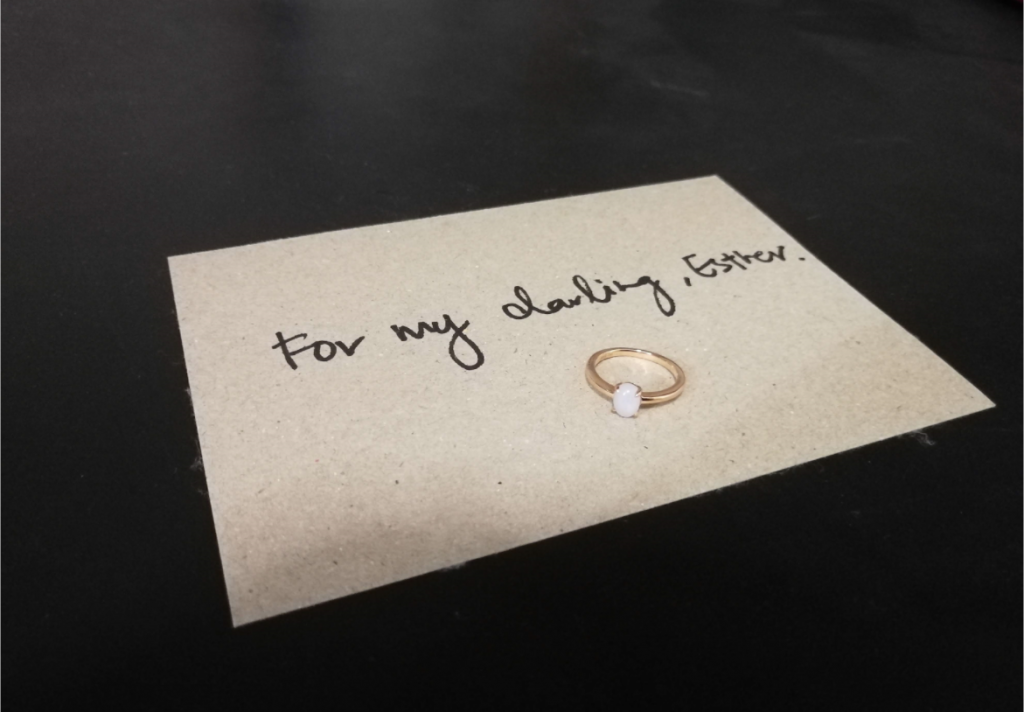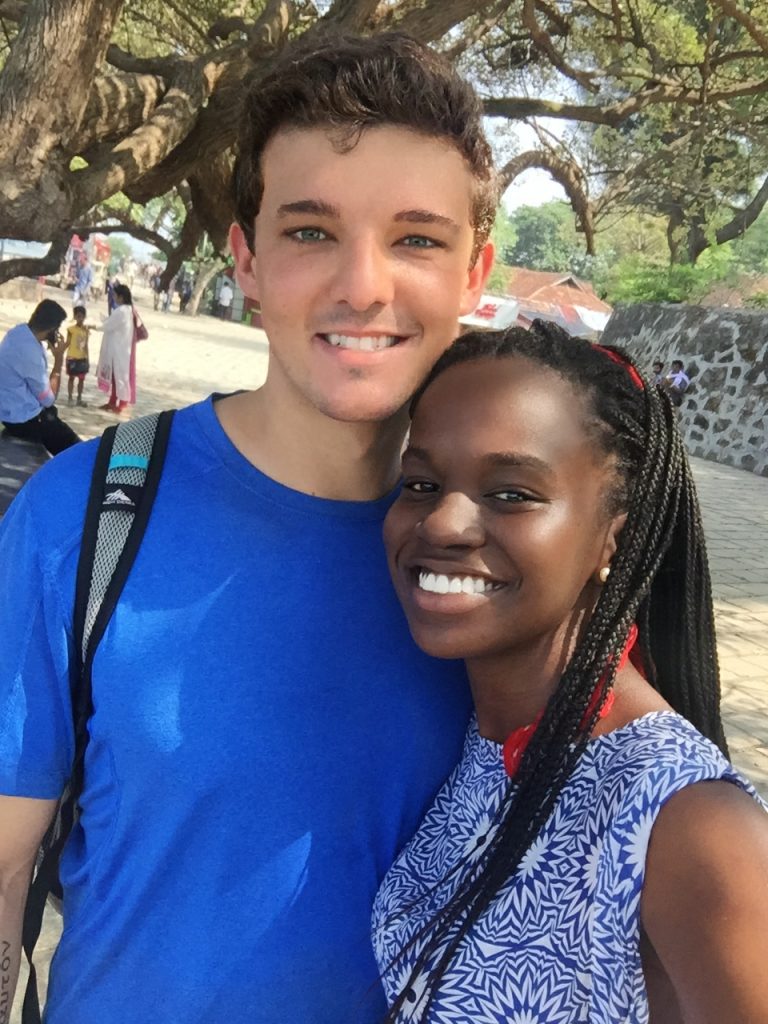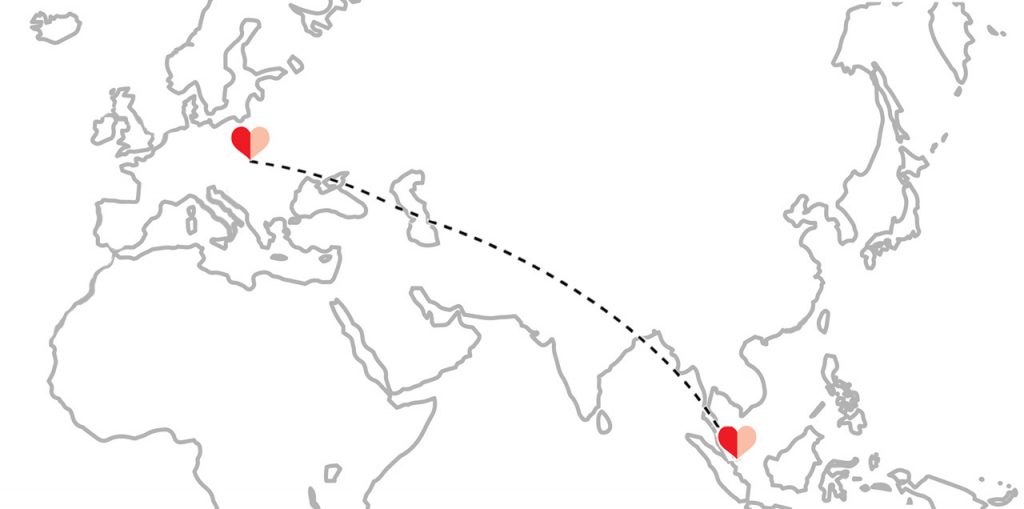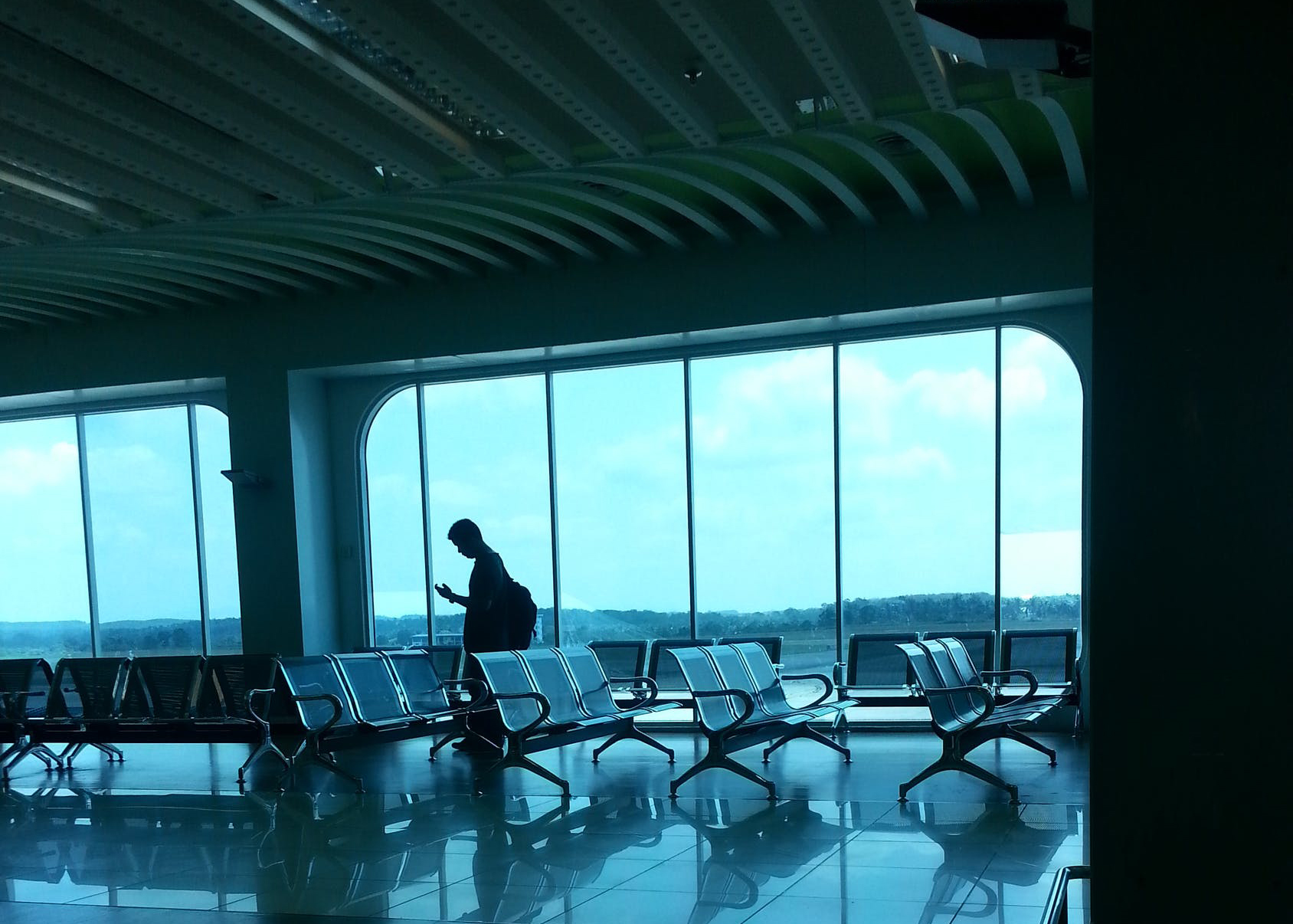A Malaysian citizen with a Singaporean fiance, the last time she was in Singapore was back in early March. “I think I’m forever scarred,” she recalls. “Before leaving the house, I said, ‘Bye auntie! See you in two weeks!”
That was when they were supposed to solemnise their marriage.
“And that night, or a few nights later, my Prime Minister came out and said we’re going into lockdown. International borders are shut.”
Since then, Esther hasn’t seen her fiance in person. The relationship is now sustained through text messages, video calls, and flowers and chocolates delivered to her doorstep.

Esther has already gotten approval from Singapore’s ICA to enter Singapore and be with her fiance. But Malaysia still requires her to apply for permission to exit, on top of securing approval to enter her destination country.
“For cases like mine where I don’t hold any long-term visas or PR in another country, I need to apply via email with the Immigration Department,” she tells me.
“And it’s frustrating. I don’t know if my email application has been received or read. I understand they are flooded with applications, but a simple acknowledgement would be nice.”
As of September 2020, the Malaysian Immigrant Department has ruled that citizens are not allowed to leave the country for “holidays and social visits, including visiting family members abroad”. Only those who are heading abroad to start a new job, attend business meetings, or settle emergency matters are allowed to do so; even then, they still need approval from the department.
Through groups like Love is Not Tourism, Esther and others in her situation get hold of information like this, helping one another figure out how to navigate the ever-changing travel restrictions.

But the plight of unmarried couples has gone largely unnoticed in places like Singapore and Malaysia.
Much of Esther’s frustration stems from the fact that she was already looking to settle down in Singapore, instead of returning home: “I think the restriction exists because it seems like some countries are afraid [of you coming back and bringing the virus]. But I’m not coming back.”
Her resignation is palpable, from the way she emphasises her pessimism to the sombreness in her voice.
“Oh, we’re not having that,” she replies, when asked when she intends to hold the wedding ceremony.
“Thank god. I just want to sign the paper and get it over with.”
He moved to Singapore in early March, just when the Covid-19 situation was starting to worsen all around the world.
“The flights were already starting to look post-apocalyptic,” he recalls.
The thing is, Daniel could technically fly to Kenya to visit Nicola, or even meet up with her in another destination, like the UAE. Both admit that they would be willing to do the two-week quarantine and to pay for the hotel and tests out of their own pocket.
But even though the process seems simple, the consequences are not. Since he’s an EP holder, once he flies out of Singapore, he won’t be allowed back in.
“And your employer has to apply for [approval] for you. So my company won’t be doing that,” he says, resigned. “I cannot—I can’t re-enter.”
On groups like Love is Not Tourism, Daniel has been keeping up with updates on travel restrictions, looking for possible ways to meet up with Nicola. The group provides a safe space not just for couples in this situation to exchange information, but also to share their stories.
“The movement is called Love is Not Tourism because it tries to get people to understand that this travel is not for fun,” Nicola emphasises, “It should be appreciated as more or less essential travel. The understanding of the term ‘family’ can be broadened.”
“I think I echo a lot of couples who say that they’re willing to do whatever is possible, just so that they can be reunited.”
She then hastily adds, “But I feel like I need to clarify that as a non-Singaporean, I have no authority to tell the government what to do.”

But for non-Singaporeans, these restrictions have merely highlighted their status as outsiders, and the rise of xenophobic sentiments during the pandemic haven’t helped.
When asked about the issue of xenophobia in Singapore, Daniel notes, “I don’t pretend to know Singaporean society very well, but I definitely see there being … let’s say ST posts something about cases and migrant worker dorms on Facebook, I can definitely read the comments. People are definitely ‘Singaporean first’—which, I mean, it’s your country.”
For someone like Daniel, who’s only been here for six months and feels like he doesn’t have a stake in what policies we end up implementing, he’s caught in a position of helplessness where he can neither do nor say much about the situation.
“[People might say], why should we do something which potentially endangers the safety of Singaporeans for your sake?” he says. “And I respect that. You don’t want to make too much noise.”
Daniel adds, “I know that in general, Singaporeans are probably not very sympathetic to my case. Why would they, right?”
When lockdown restrictions kicked in, she thought they would last only a month. But as the pandemic dragged on, she grew increasingly anxious, to the point where it affected her performance at work.
“One day you are full of energy, and you’re like, we will keep fighting. Another day, you are completely down and you can’t do anything. You just cry all day,” she describes.
Other than regular Zoom calls with her fiance, what has helped her get through this period of time is pouring her energy into the Love is Not Tourism movement. As a Slovakian based in the Czech Republic, she first got involved with the Europe chapter.
“I think it’s a little bit easier with Europe, because you can easily reach the ministers,” she notes. “I feel like, every week, I’m speaking with the government, like the Ministry of Interior and Ministry of Foreign Affairs.”
And then she found the Singapore chapter of the movement. But the local petition hasn’t gotten much traction at all, despite having been up for two months.
Calls to politicians like Minister Lawrence Wong and MP Raeesah Khan haven’t moved things forward, even though MP Jamus Lim has allegedly even requested to join the group, according to Klaudia.

Technically, her fiance can fly into Europe, which is what they are trying to arrange right now. He just has to prove why he is visiting Czech Republic and take a Covid-19 test within five days of entering.
“He is asking for some kind of home office at work, so we’re trying to figure this out, because now I have a lot of work here.” Klaudia also intends to apply for entry into Singapore in November, when her workload eases. “But, actually, legally, I have nothing to apply for in Singapore.”
What underlies all of this anxiety is the sheer uncertainty of the situation. Klaudia understands the Covid-19 will be a long-term thing—reassuring people like her that borders will open up soon is as good as telling a kid that you will buy them that Snickers bar after they finish their vegetables. Anyone with a vague grasp of the situation knows that such promises are half-hearted at best.

If a businessman can travel from Singapore to Shanghai for a conference, then why can’t someone cross the Causeway to have their marriage solemnised?
“I guess the closest model to follow would be the European one,” Esther suggests, “where you need to show tangible proof of your relationship. That it’s … long-lasting, serious.”
The stress and frustration of not having your relationship legitimised, along with the terrifying prospect of simply not knowing when or if you can see your loved one again—this takes a toll on anyone, especially during a time that is already emotionally and mentally draining.
Reviewing travel restrictions for unmarried couples is, at its core, about adding that bit of humanity and compassion into a conventionally bureaucratic process, and showing that we can demonstrate kindness even in the face of uncertainty.
*A previous version of this article indicated that an image was courtesy of Klaudia. The article has since been corrected.
If you haven’t already, follow RICE on Instagram, Spotify, Facebook, and Telegram. If you have a lead for a story, feedback on our work, or just want to say hi, you can also email us at community@ricemedia.co.





